
“Off-the-shelf training content is no longer an uncomfortable compromise”
When is a custom training course money well spent? And when does an off-the-shelf training course make sense?
Digital training solutions continue to gain ground. With the objective of placing learners at the core and inspiring them with real learning experiences, decisions have long been based on factors other than just time and cost.
Yet, to design individual learning paths, you don’t necessarily need custom training content. We spoke to two learning experts, who explain the differences between custom and off-the-shelf training content, and describe what content is best suited for a custom or an off-the-shelf training course design.

Custom vs. off-the-shelf training content – the differences
Custom training content – specifically and exclusively designed to meet a company’s e-learning requirements – is generally created from scratch. Its starting point is a specific need or task, for which a special solution is designed, and an entirely new training course is created.
These solutions are a great choice for companies seeking to cover specialised topics, such as training for their own production areas – where it can be safely assumed that no standardised solution suitable for their needs exists.
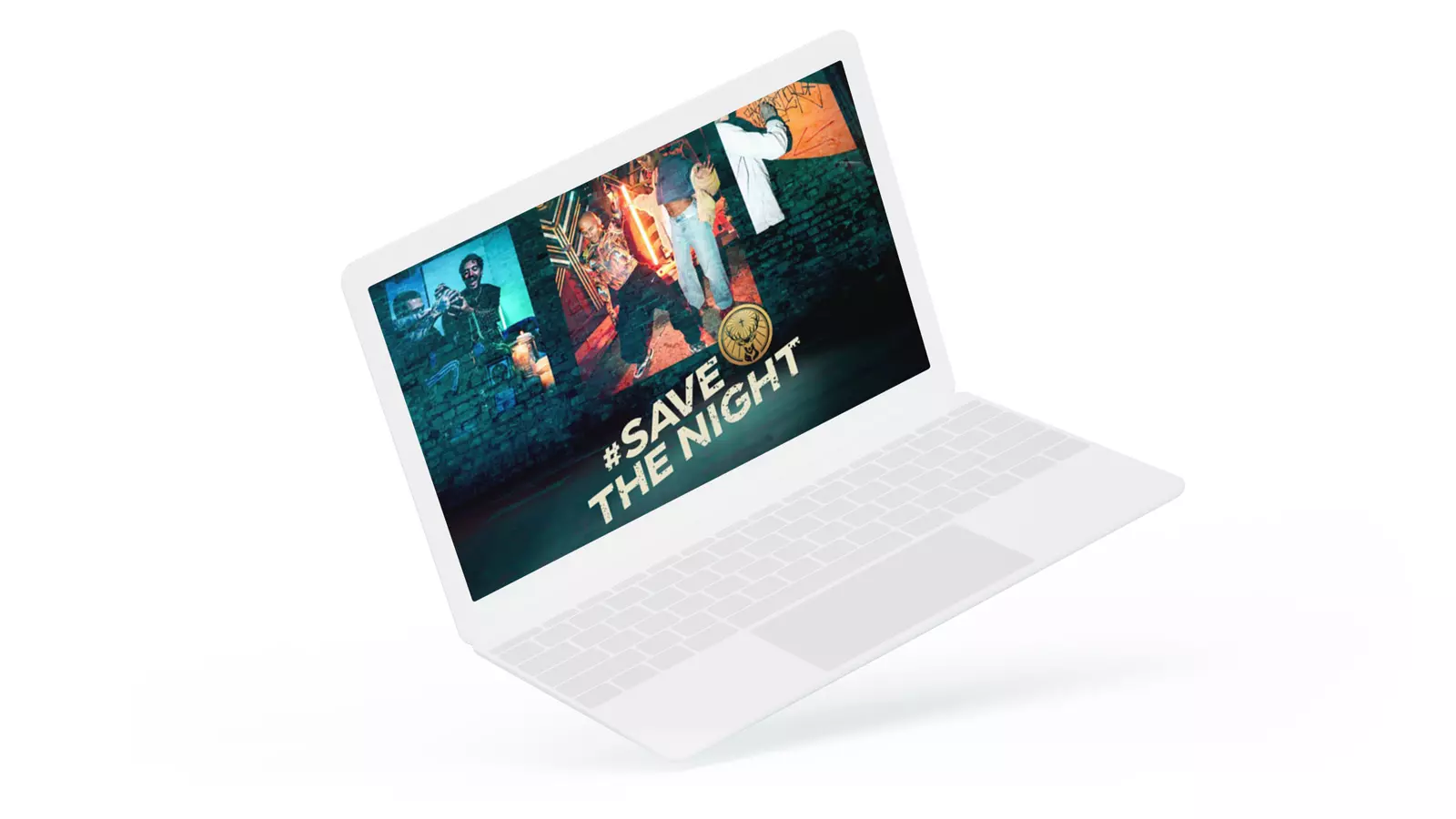
Custom Content: Jägermeister Meister Academy
Meanwhile, off-the-shelf training content describes training courses or learning content created independently from any specific customer enquiry which can be used by different companies in a generic form. Thus, this content addresses tasks of a general nature rather than a specific issue or need.
Typical topics almost every company needs to deal with would include information security and data protection. These can be perfectly covered with off-the-shelf training courses, as they reflect regulations and laws applicable to all, rather than company-specific issues.
A clear preference for off-the-shelf training content also exists for compliance trainings, given that the fundamental principles are based on the applicable laws. However, if a company wants to convey their corporate policy in their training course, things get trickier. Stephan Härle, Instructional Designer at imc explains: “Off-the-shelf trainings provide information of a general nature: You must be careful with gifts and may have to contact your Compliance department. Meanwhile, custom training content can offer more detail: In our company, gifts worth X or more must be approved by our Compliance department. It is impossible to include this in off-the-shelf training content because guidelines differ in every organisation.”
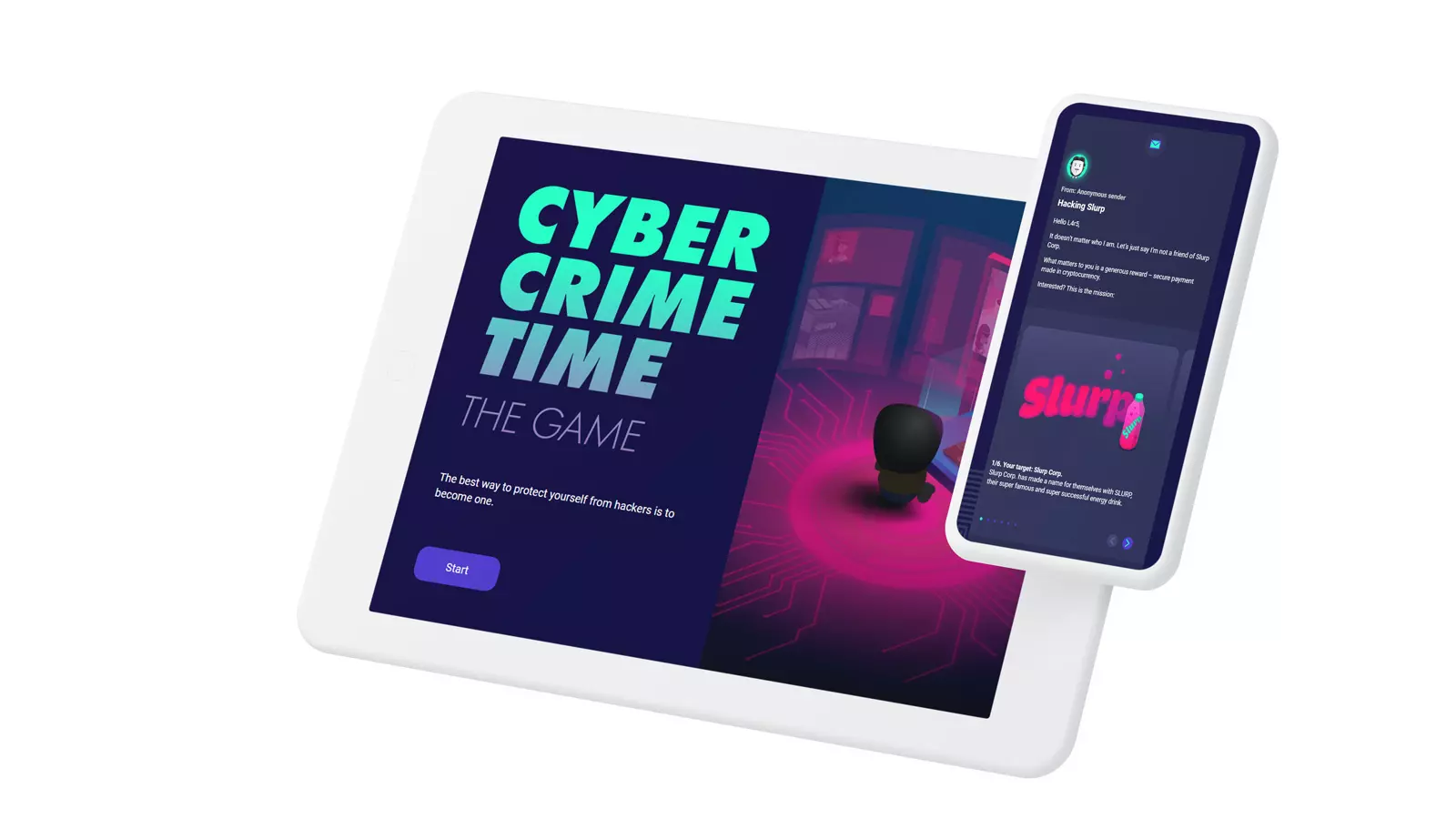
Standard Content: Cyber Crime Time
“This should really be the first question to ask from a customer perspective – before deciding whether to use off-the-shelf training content or arrange for custom content design,” Philipp Schossau, also Instructional Designer at imc, explains. “Are my training requirements or issues very specific? Or is this type of training utilised by many different people in various sectors?”
How unique is custom training content?
“First of all, we get together with the customer and carry out a major needs assessment,” Stephan Härle says. “If the right conclusions are drawn at this stage, the training can be designed to fit the target group perfectly. But we can only do that with a custom training. Defining the target group very precisely enables us to find the right approach, make the training exciting for a greater number of learners, and increase the completion rate. Custom really means customised for a specific requirement and tailored to the learners’ needs.”
“It’s like buying an outfit,” Philipp Schossau continues: “If you were to attend a gala dinner, it would be rather difficult to find a suitable mass-produced smoking that fits perfectly. However, if I’m only going out for a nice dinner, without it being a special occasion, then I can buy and wear off-the-shelf outfits that I enjoy wearing.”
Still, even the best store-bought suit cannot compete with a tailored fit, and the same applies to e-learning content for certain target groups. “I understand this issue all too well. I have very short arms, and many things will simply not fit straight off-the-shelf,” Schossau jokes.
We raise the bar for off-the-shelf training content
In the past, off-the-shelf content often seemed somewhat stale. That is changing. This past year, imc has been developing and expanding its off-the-shelf content. The specialist department researches relevant topics in its market. Ideally, the solutions are a match for all customers and across countries. But above all, the latest off-the-shelf training courses aim to feel good, cutting edge and highly motivating.

INFO
- At imc, off-the-shelf training content meets the same high requirements for design and user experience as custom training content.
- T off-the-shelf training courses recently designed by imc are fully responsive, and the relevant training courses can be completed from mobile devices.
- Both categories can be integrated into a learning management system (LMS) or be utilised without an LMS.
Stephan Härle: “We want off-the-shelf content to break free from its poor image. While many reasons speak for custom content, off-the-shelf content need not be an uncomfortable compromise. On the contrary, it can be a perfectly suitable and useful solution that is also enjoyable.”
Naturally, resource investments are significantly lower, given that no further input is needed for the content design. Moreover, ready-made training content is available much faster than a custom solution that needs to be designed first. Of course, costs can play a role in this decision, too. Off-the-shelf content is usually cheaper.
But the two categories can also be combined to leverage their strengths, Härle explains: “There really are no limits! With an individual learning journey, off-the-shelf content might, for example, be included as learning nuggets. Our objective is to create off-the-shelf content that feels nothing like off-the-shelf. Cyber Crime Time, the Journey, is a prime example for this.”
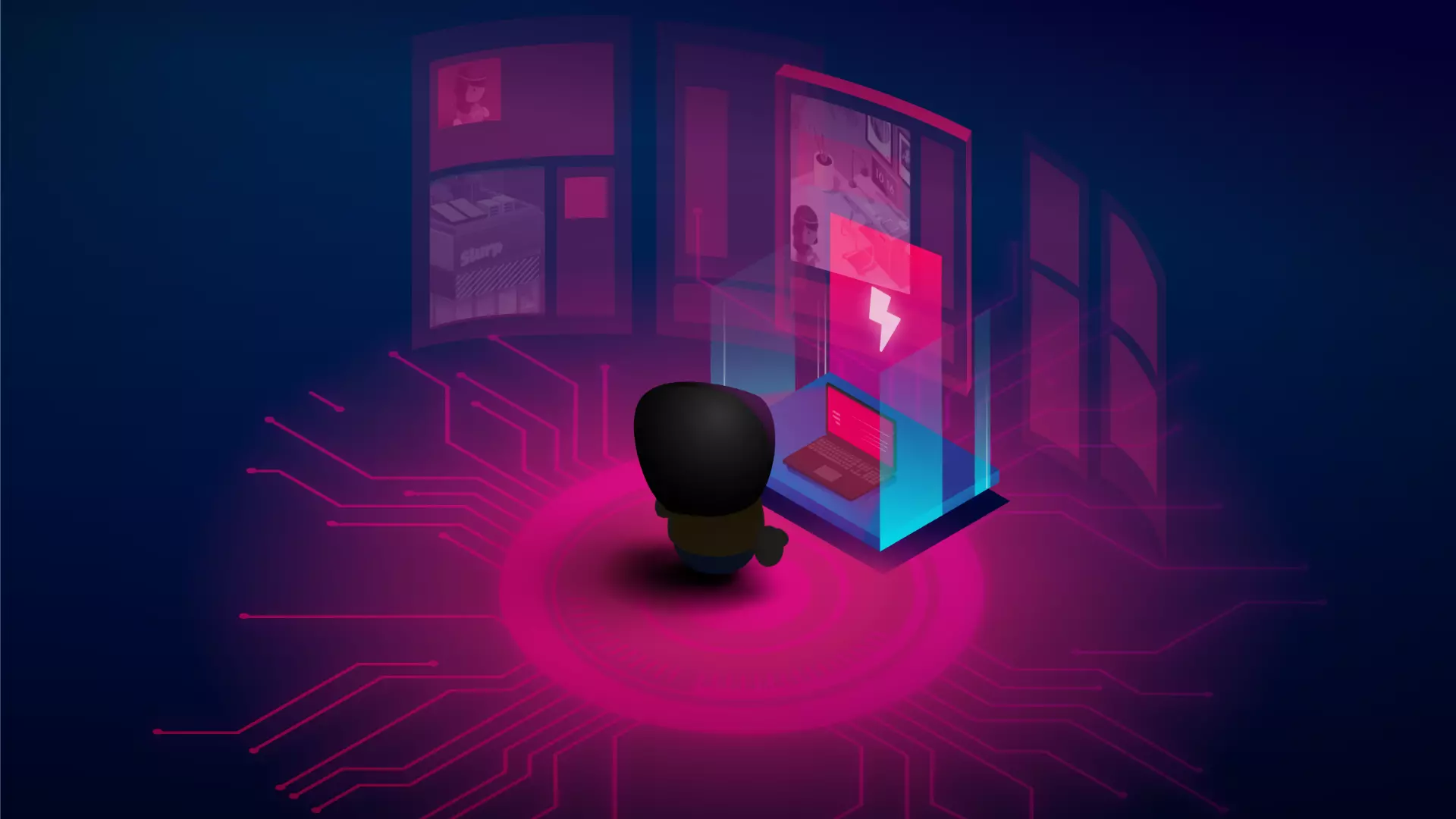
Cyber Crime Time
The Grimme Online Award nomination adds to a long line of awards recognising the serious game Cyber Crime Time. With the Cyber Crime Time learning journey, the creators respond to current developments, and offer extensions like the Phishing Detection Booster.
Companies can purchase Cyber Crime Time as off-the-shelf content. A trial version is available for anyone wanting to play the role of a hacker.
The questions companies should be asking themselves, when deciding whether off-the-shelf content could meet their needs:
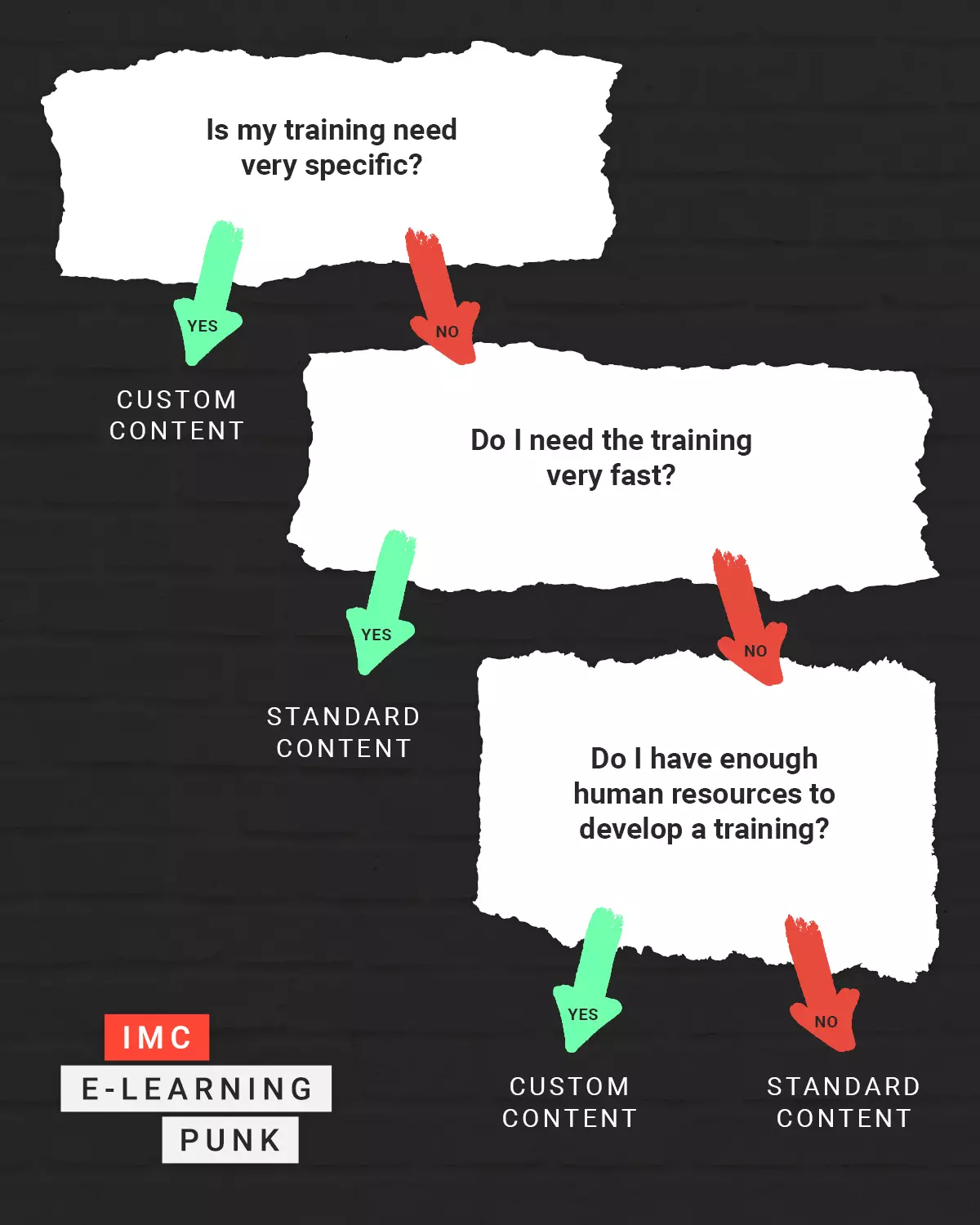

The Netflix Factor in Self-Directed Learning
Self-directed learning and Netflix have a few things in common! We find out what, how it can be used in companies and where the limitations lie in corporate learning.

The Power of Emotionally Intelligent Brand Training
Emotionality makes it easier for employees to identify with the brand. This identification has a positive effect on motivation and thus directly on daily work. Emotional brand training also generates brand ambassadors from within the company - both internally and externally.
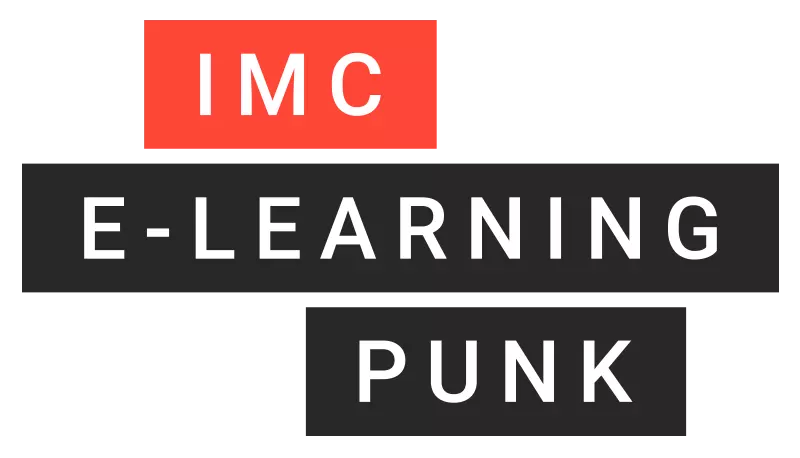
Contact person
I joined the imc newsroom team in 2021. As a journalist my heart beats for content and storytelling.
I’m excited to figure out how e-learing and digitization affect the future of work. My task is to create content to talk about and I’m always looking for trends.
Privately I love to travel and eat Tapas.
Topics: E-Learning Trends, Corporate Social Responsibility, Press and Influencer Relations
